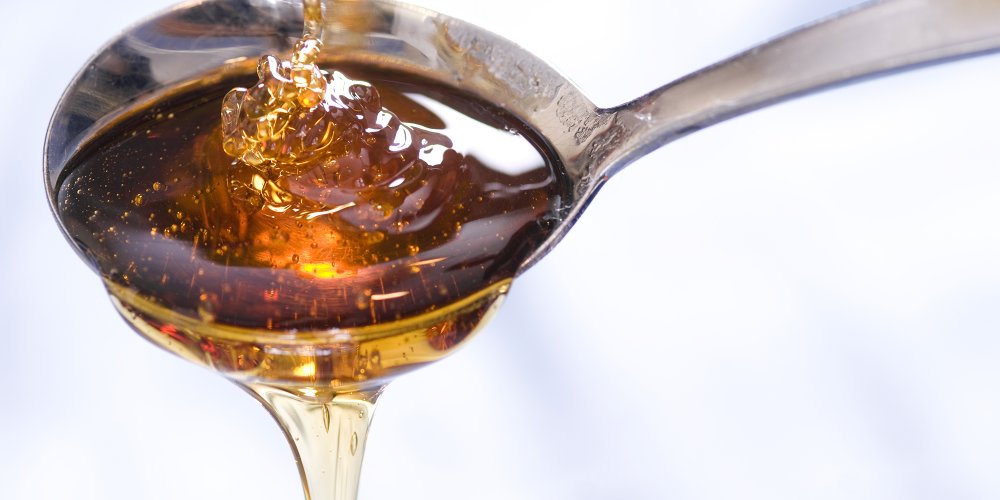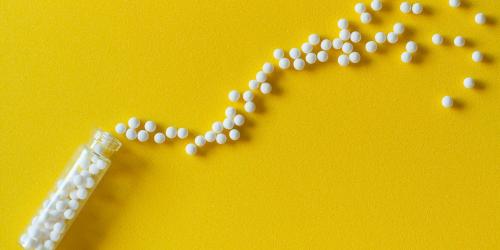- Honey is a good alternative to white sugar
Honey is an unmatched sweetener because of its high sweetness: one and a half times higher than refined sugar. We can therefore put less to get a similar sweet taste: 70 g of honey (200 kcal) is equivalent to 100 g of sugar (400 kcal), which is half the calories absorbed!
And unlike white sugar, "it does not bring empty calories," observes Dr. Pierre Nys, endocrinologist-nutritionist, author of The Big Book of Food IG antidiabetes (ed Leduc's).
Honey contains 82% of carbohydrates, but also proteins, vitamins and many micronutrients (flavonoids, minerals ...) essential to preserve its health capital.
- This is one of the best cough weapons
Honey softens the throat and has real antiseptic virtues because of its rich polyphenols, antioxidant molecules. It also contains gluconic acid and hydrogen peroxide (or hydrogen peroxide) that oppose the proliferation of germs. Ideal for counteracting bronchitis, angina or rhinopharyngitis.
Some honeys prove to be more effective than others in decimating microbes in the ENT sphere, since they contain bactericidal compounds from bees pollinated by bees. This is the case, for example, "honey thyme or eucalyptus," says the pharmacist Olivia Metral, author of The Honey in your pharmacy (Baroch Ed.).
- It does not raise the blood sugar level, so it can be consumed by diabetics
On the contrary, at reasonable doses, many honeys do not raise blood sugar because they deliver more fructose (fruit sugar) than glucose.
All honeys, however, have a different composition. Liquid varieties, such as honeys of acacia or chestnut, are best endowed with fructose. They are therefore preferred in case of diabetes or pre-diabetes. Their glycemic index, which reflects their impact on the sugar concentration of the blood, is only 30, against 80 on average for other honeys.
Conversely, varieties that crystallize (lavender, rapeseed, sunflower ...) are to be avoided. More glucose-rich, they are likely to disrupt the balance of diabetes.
- It's a food stuffed with antioxidants
The more honey contains minerals and polyphenols, the darker its hue. Now it is the polyphenols that mainly give this food its antioxidant capabilities. By fighting against free radicals, they preserve aging cells.
For optimal health prevention, bet on honeys of oak, eucalyptus or fir.
- Eating honey aids digestion
"Thanks to its laxative properties, honey helps fight against constipation," says Dr. Metral. It also stimulates the intestinal flora thanks to its pre-biotic effect, which boosts the growth of friendly bacteria housed in our colon . Its consumption therefore regulates intestinal transit and combats gastroenteritis . Honey also facilitates the work of the stomach, It is particularly recommended for people with gastric ulcers.
How to choose your honey?
More and more doubtful honeys are breaking on the market. Those produced on an industrial scale are often degraded by heat. To choose a quality honey, look closely at the labels: the mention "cold extract" must be included. The best is to buy directly from a small beekeeper or to prefer short circuits. In supermarkets, beware of honeys with no indication of precise origin, such as "honey from the European Union and outside the EU". Some pots straight from Asia contain more glucose syrup and egg white than real honey.
A nectar to taste without cooking
Honey does not support heat well. Cooking in fact denatures many of its active compounds, which decreases the nutritional and therapeutic virtues of this food. Better to taste it as is, with a spoon or on a slice of bread. In the kitchen, add it at the end of preparation: once the cooked rice for example for the making of a rice pudding.
Zoom on Manuka honey, the most popular of the moment
This highly publicized honey certainly does not lack assets. Derived from the foraging of a New Zealand bush (manuka), it displays a high level of methylglyoxal, a compound whose antibacterial and anticancer properties have been confirmed by several scientific studies.
Many European honeys, however, seem equally active. Not necessarily useful, therefore, dropping its budget to buy Manuka honey (from € 20 to € 50 250g jar). Especially since scams are to be feared. Many of Manuka's so-called honeys are actually blends. According to Dr. Olivia Metral, "Manuka honeys are found on the market and contain only 5% Manuka honey".




